
Starting June 1st, 2023 Our warehouse fee will be $0.65/cubic foot per month
In effort to lower the warehouse storage fee during inflation, we have went narrow aisle racking.This construction took us four months but the project is finally completed. With narrow aisle racking, we are able to drop storage by 24%.We as partners will go through this inflation together.
02/05/2024
The term "third-party logistics," or "3PL," describes the practice of engaging other companies to handle some aspects of an organization's order fulfillment process, such as distribution, inventory control, warehousing, and delivery services. In order to satisfy clients' demands for delivery services and product demand, third-party logistics providers specialize in integrated warehouse and transportation operations that can be scaled and tailored to their needs based on market conditions.
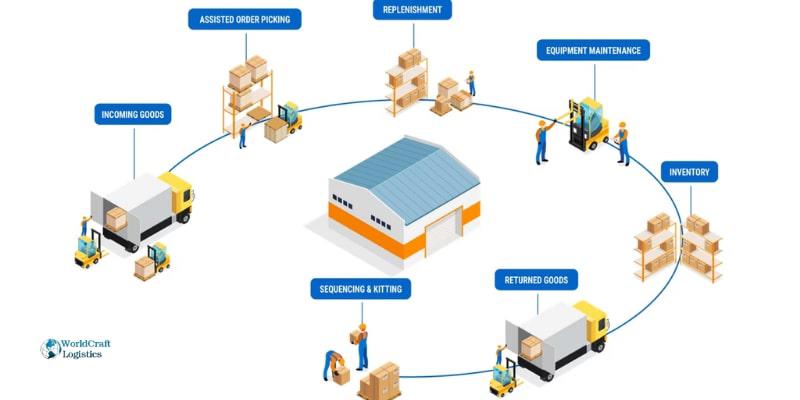
A third-party logistics (3PL) provider normally provides a number of services related to supply chain logistics. They make it possible for businesses to contract out various aspects of operational logistics, such as freight forwarding, delivery, automated order fulfillment, packaging, warehousing, and more. Choosing to outsource these responsibilities can have a number of advantages, some of which we go over below.
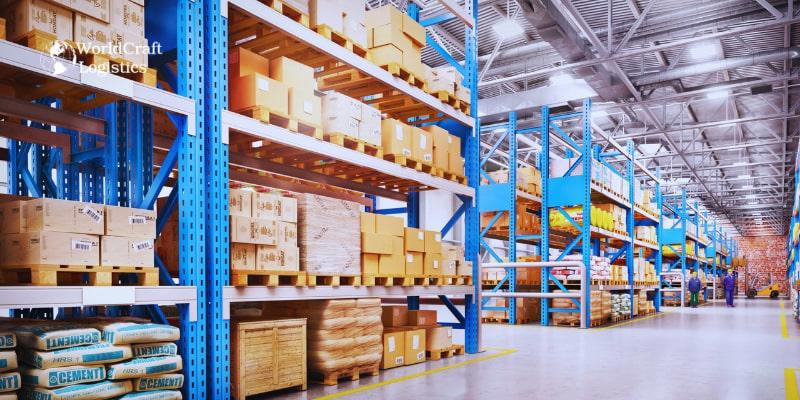
Your team's workload is greatly decreased when you contract out your logistics to a different party. Similarly, your company's need for physical space will drop significantly. Furthermore, scaling up and down this option is rather simple. Choosing a 3PL supplier can save your company a significant amount of money by removing the requirement to buy land or rent a suitable facility. Furthermore, you won't have to pay for any warehouse machinery, including conveyors and forklifts, or obtain a license for any technology related to warehouse management systems. Additionally, it will save your company money by avoiding the need to recruit more laborers for the warehouse, which sometimes comes with higher salary, benefits, and insurance costs. In the end, working with a 3PL provider eliminates the need to make investments in warehouse management and infrastructure.
Since a 3PL supplier is an expert in all aspects of fulfillment operations, you can usually be sure that they will manage your business effectively and with ease. It should be easy to discover a 3PL company that complements your company's retail supply chain because there are many of them available. Additionally, because of their extensive knowledge and propensity for handling big volumes of material, they may be able to offer network assistance and bulk shipping cost discounts.
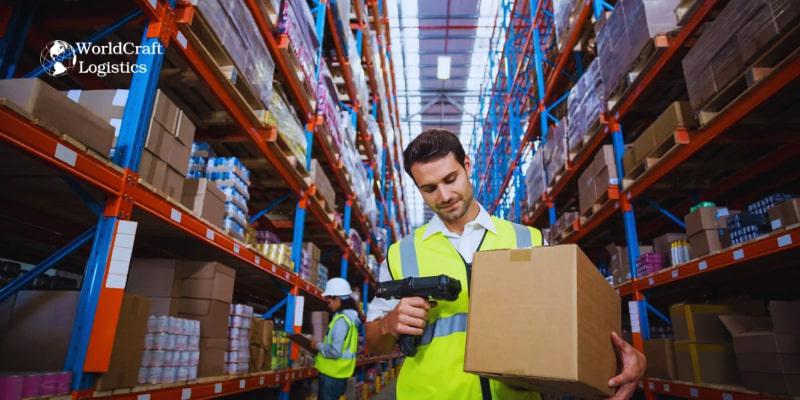
The majority of contemporary 3PL businesses have access to smoothly integrated technologies, such as automatic order tracking, real-time inventory tracking reports, stock level alerts, and more. This can offer timely and insightful information about how to maintain business operations and satisfy clients with the desired inventory.
A 3PL can help if you are a large business owner because they can frequently keep inventory at multiple fulfillment locations. As a result, as a shipment's journey distance is shortened, shipping expenses and times may be decreased. This could broaden the kind of assurances your company can provide, such as a 3-day delivery window.

A variety of supply chain logistics services are usually provided by a third-party logistics (3PL) provider. They make it possible for companies to contract out logistical tasks including order fulfillment, labeling, freight forwarding, delivery, and warehousing. Additionally, with a dependable overview of the fulfillment process, this enables companies to concentrate on their core business operations.
We next go over the several use scenarios where 3PL proves to be the best option.
Companies won't have to pay for warehouse machinery like conveyors and forklifts, nor will they need to obtain licenses for any warehouse control systems. Businesses can save a significant amount of money by working with a 3PL provider instead of purchasing land or renting warehouse space that suits their requirements.
The workload of the internal team is greatly decreased when logistics are contracted out to 3PL partners. In a similar vein, the business would need far less room for storage. Additionally, it is not too difficult to scale up or down 3PL services.
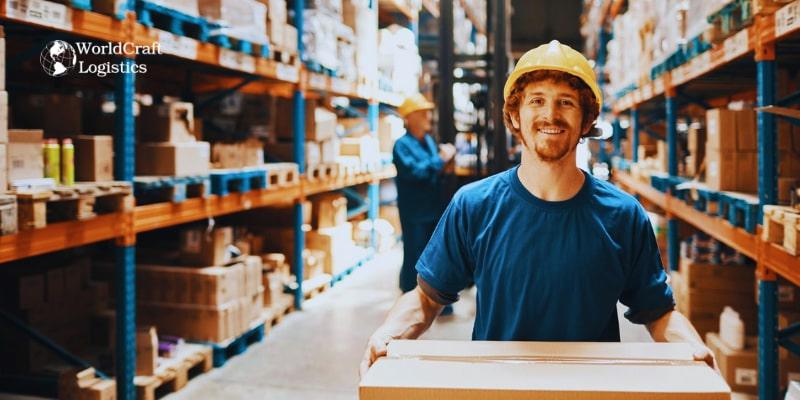
An expert in operational fulfillment procedures and inventory management, encompassing receiving, picking, packing, shipping, labeling, carrier pickups, returns, and more, can be found in a third-party logistics provider. As a result, companies can now rapidly begin working with a 3PL that manages substantial delivery volumes and integrates easily into retail supply chains.
Volume brings with it bulk shipping discounts. The network of partners enables quicker and more efficient service as well as the capacity to grow and manage any spikes in volume to guarantee a seamless fulfillment procedure.
With features like automated order monitoring, real-time inventory tracking updates, automated inventory level warnings, and more, the majority of contemporary 3PL companies have access to seamless integration solutions.
In addition, the seamless synchronization with current systems, such as ERP, enables comprehensive integration and overview. This makes it possible to get quick and relevant insight to maintain customers happy and businesses operating.
Any contemporary 3PL with access to technology can provide shipping and customer solutions for eCommerce companies. This calls for perfectly integrated systems that link to every online retailer and forward orders to the 3PL automatically as soon as they are placed.
Also, companies can monitor stock levels in the fulfillment center of their third-party logistics provider (3PL) and establish alerts to place additional orders as necessary.
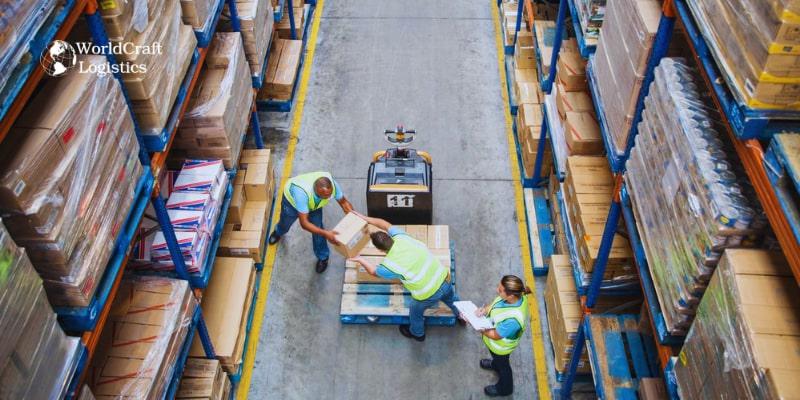
Companies looking to reach a wider client base and enter new markets can depend on a 3PL to support their expansion into new regions. 3PLs have the tools and technology necessary to implement changes that would be challenging for enterprises to implement independently, thanks to continuous advances made to many elements of the supply chain.
Logistics management software helps monitor and evaluate supply chain processes to get rid of inefficiencies. As a result, logistical procedures become more efficient and save money.
With various fulfillment locations, the majority of 3PLs enable businesses to position inventory closer to their customers due to their larger networks. This saves money and transit time by shortening the distance a shipment must travel to reach its destination.
Faster shipping alternatives, such 2-day or same-day delivery, are less expensive since 3PLs manage their fulfillment centers and have insight into what goes on inside their warehouses. Using ground-based delivery rather than fast air and delivering from fulfillment centers in cities close to higher concentrations of the general public both contribute to this.
Customers want faster, more economical shipping for their online orders as the e-commerce sector grows. It can require time and effort to deal with various carriers and distribution channels on an individual basis, though. A single interface can be used to access different providers and service options, which is only one of the time-saving solutions offered by 3PLs.
By outsourcing their logistics to 3PL providers, businesses can easily offer their clients a variety of delivery alternatives at the most affordable pricing. This improves customer satisfaction while freeing up time to maximize other customer-beneficial business areas.
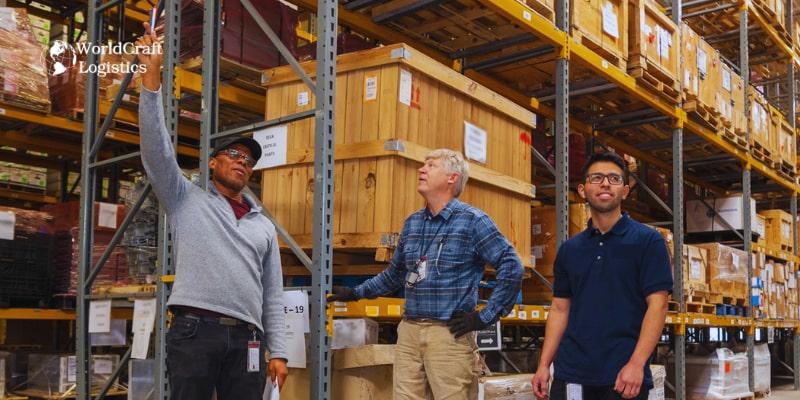
With the help of several 3PLs, companies can handle every part of their shipping from a single, easy-to-use online platform thanks to their transportation management system (TMS). To improve the e-commerce website's user experience, organizations can connect their TMS with a variety of eCommerce connections.
Numerous third-party logistics companies have decades of combined experience in the field. Businesses can use this information to help them navigate challenges like shipping legislation, transit documentation, and other logistics concerns when they employ a 3PL company.
A department dedicated to internal logistics requires resources and attention. By using a 3PL provider, companies may focus on their core skills and business operations instead of allocating internal staff or resources to manage an internal logistics division.
This demonstrates that third-party logistics solutions offer a wider range of advantages when compared to in-house logistics solutions.
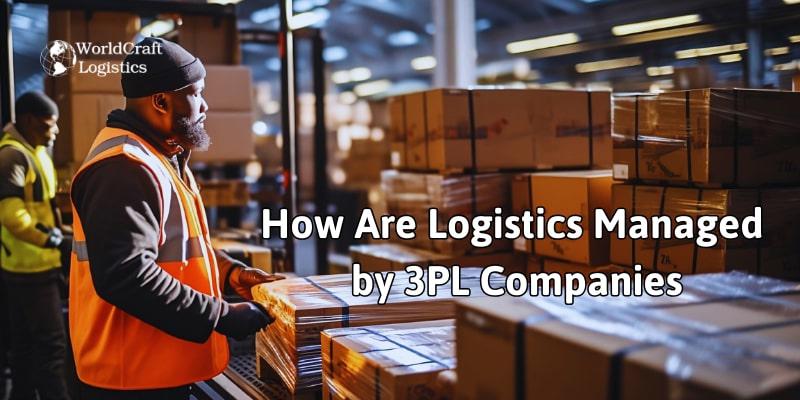
These days, shippers anticipate greater efficiency, quicker shipment, and improved order visibility from 3PL suppliers. As a result, 3PLs rely more and more on intelligent management software that expedites shipment. Route optimization, enhanced automation-based efficiency, last-mile visibility via real-time tracking, quicker information sharing, and data visualization enable this.
To enhance last-mile delivery, automated data entry and manual procedures are replaced with artificial intelligence, machine learning, and smart management software. Leaders in the sector believe that automation is a positive development. 3PL businesses can handle several eCommerce clients and retailers and guarantee more effective logistics operations by using the software.
In order to assist organizations meet evolving client demands, the modern 3PL solution needs to be equipped with a wide range of features and functionalities. This includes the ability to adapt to last-minute modifications, volume fluctuations, and the need for greater process transparency. Businesses may accomplish all of this while successfully interacting with other stakeholders' technology as necessary thanks to 3PL software.

When a business practices in-house logistics management, it oversees, plans, manages, and carries out all aspects of logistics, including distribution, transportation, inventory control, and warehousing. Internal management oversees the entire supply chain and logistical distribution. The fleet and its assets, including riders, cars, and other items, are privately held. The quantity of assets owned and the degree of logistics management varies depending on the type of business model.
In addition to internal fulfillment, other names for it include self-fulfillment. Businesses that handle their own logistics manage every aspect of the process, from route optimization to inventory tracking and order management to delivery protocols.
These businesses and brands have their own fleet of cars and drivers, as well as warehouses and logistics managers.
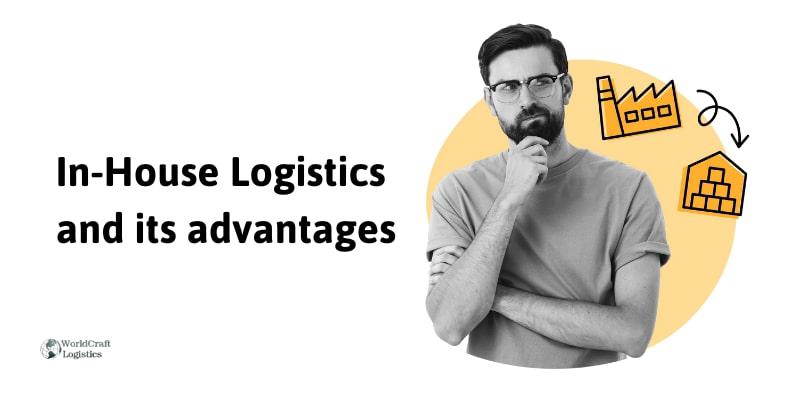
In a nutshell, internal logistics is the reverse of outsourcing to a third-party logistics service. It occurs when a business has the personnel and infrastructure to manage its own logistics. Even while this can be very labor-intensive, there are several advantages to keeping things in your company, which we go over below.
Having total control over your fulfillment procedures is one of the finest benefits of managing your logistics in-house. You get to choose how your goods should be picked, packed, stored, and delivered to clients. Furthermore, since your fulfillment warehouse is exclusively used by your business, you can design the ideal area that provides maximum productivity and storage. Rather than needing to modify your procedures to fit within a predetermined space, you can design your warehouse to complement your workflows.
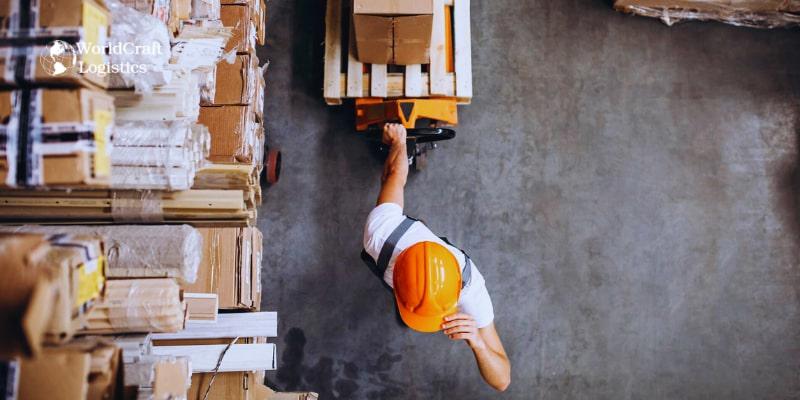
You are ultimately the one who knows your company's demands. This means that managing your logistics internally guarantees that all of the steps involved in your fulfillment process will be in line with the procedures, ethics, and values of your business. But, outsourcing logistics to a 3PL frequently results in the loss of this real concern and in-depth understanding of your company.
Making modifications and tweaks is simpler and quicker when you collaborate with your reliable team. A company that handles its own logistics can be more flexible since it can address any changes or problems more quickly because there isn't a need for back-and-forth correspondence with an outside party that isn't fully aware of the situation.
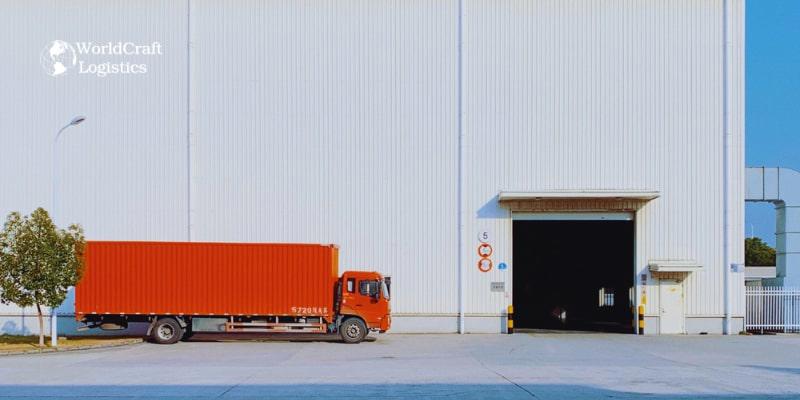
Although it would seem convenient to just hand over your logistics to a 3PL and forget about them, this is rarely the case. To make sure your fulfillment is occurring successfully, efficiently, and to the pleasure of your firm, there is frequently a lot of communication. In addition, any problems should prompt further contact. It can be annoying when a 3PL is a separate business and doesn't always prioritize answering your calls. When working with a third-party provider, communication can be challenging, so it's usually simpler to manage things internally.
Choosing to handle your logistics internally can be beneficial if you wish to provide each consumer with a personalized touch. It enables you to maintain any customized or distinctive packaging for every order without having to pay the high fees involved in hiring a 3PL company to handle it. It gives your company the flexibility and freedom to customize the experiences of your clients.
Taking up order fulfillment internally may get tiresome, regardless of the term used by businesses: internal fulfillment, DIY logistics, self-fulfillment, or in-house logistics. It does, however, offer a few benefits, which we discuss below.
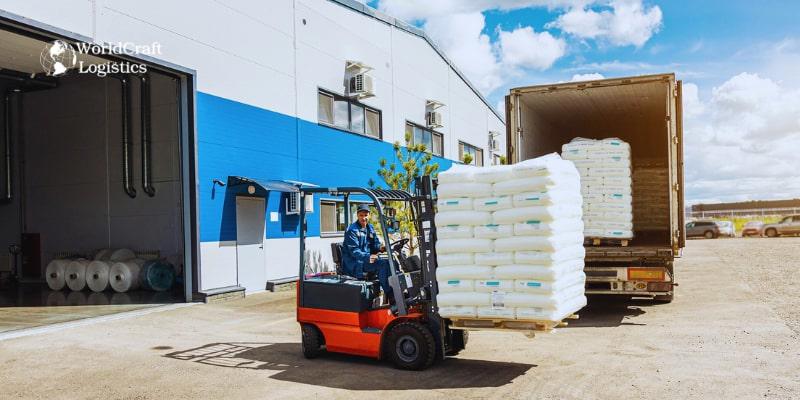
Businesses that manage order fulfillment internally are in total control of the way that products are picked, packed, stored, and delivered to clients. Assume the team has a seasoned fulfillment specialist. The distribution network thus also turns into a key capability. This makes managing the order fulfillment process on their own much simpler for companies who have established their eCommerce supply chain.
Since the fulfillment warehouse will only be used by the company, it will be possible to customize the space and procedures to meet the needs and preferences of the users. It removes the requirement to follow a uniform process utilized by several companies, sectors, and goods. Companies can even conduct warehouse audits as needed.
When comparing in-house logistics solutions with third-party logistics (3PL), it becomes evident that self-fulfillment is better than the other alternative in some cases.
3PLs might not be able to handle that level of customization or might wind up charging outrageous costs for the same if businesses offer distinctive packaging and personalization on every order. Businesses who pack their own products benefit from the independence, flexibility, and guarantee that everything will be flawless every time.
Let's say a company sells handcrafted, fragile, made-to-order, or special care items through a subscription box service. Then, inward contentment might be quite advantageous. Additionally, it guarantees that businesses uphold customer satisfaction levels that are in line with the current workflows and logistics frameworks.
Keeping the logistics in-house can be the ideal solution for companies looking to provide a personalized touch to each purchase they receive from clients. They can use any special packaging or personalization for every order thanks to it, all without having to pay the hefty fees involved in using a 3PL provider.
Moreover, internal logistics facilitates smooth customer service and communication for companies. This allows businesses the latitude and adaptability to customize services based on the experiences of their clients.
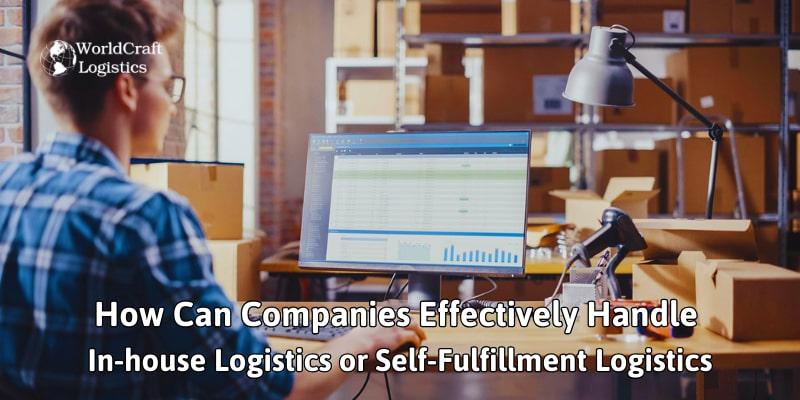
Effective handling of self-fulfillment and internal logistics necessitates a carefully thought-out approach that aids companies in organizing, planning, and controlling all important parties and procedures in a cohesive way. Automation of logistics is therefore the first step.
Businesses that manage internal logistics or self-fulfillment can benefit from automation. Systems like Warehouse Management Systems (WMS), which assist in inventory organization, storage, and tracking in addition to automating the packaging and delivery of orders, can be used to achieve this. Additional instances comprise Order Management Systems (OMS) and Transport Management Systems (TMS), among others.
TMS assists companies in efficiently optimizing their on-road movements. To guarantee that products are delivered on time and that resources are used effectively, businesses should optimize their routes and delivery schedules. Software for route optimization can be used for this, as it can optimize delivery schedules and routes to save money and time.
Furthermore, companies can handle self-fulfillment or internal logistics more effectively with the use of astute technology-based solutions like real-time tracking systems, inventory management software, and cloud-based order management systems. As a result, companies can keep track of orders, retain information, and offer real-time insights into delivery, inventory, and other logistics processes.
Therefore, effectively managing self-fulfillment is a huge undertaking that calls for many resources, particularly for large-scale brands and businesses. This is the point at which 3PLs become relevant.
The following table compares several key capabilities and shows how in-house logistics systems and 3PL differ from one another:
Basic | In-house | 3PL |
Process of Packing | Complex packing for customization | Simple packing with no customization |
Operations Management | Limitations in smooth functioning of current operations | No limitations to smooth functioning of current operations |
Transportation Costs | Higher costs due to customization options | Lower costs per mile |
Production Process | Ideal for small warehouses with less production | Higher production due to higher storage space |
Preparation | Preparation in smaller quantities | Bulk preparation of items |
Customer Expectations | Enables higher customer satisfaction through pickup accommodations | Greater scope of increasing customer satisfaction with timely deliveries |
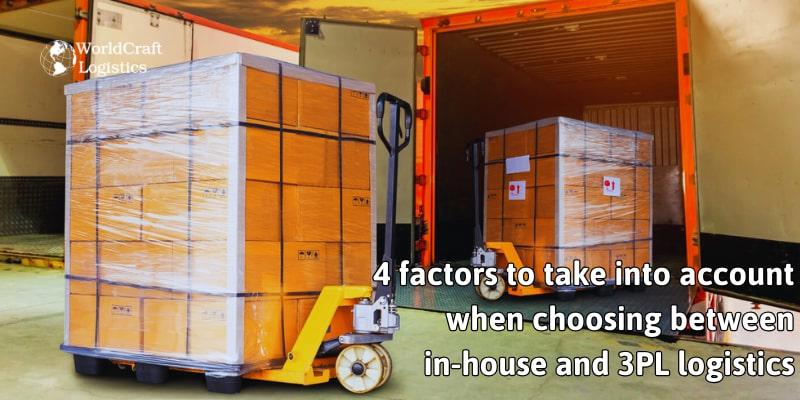
We advise you to consider four important factors while choosing amongst your fulfillment choices. These consist of:
Do you observe changes in your product's demand with the seasons? If so, who is better qualified to manage this - you or a 3PL provider?
Which would you prefer possibly reduced expenses or more flexibility and control over your fulfillment processes?
Every year, 3PL provider contracts and costs change. Is your company ready for this, or are you better off handling things internally, where you can control most of the costs?
Which choice, taking into account the needs of your business and comparing 3PL with in-house logistics, will best meet your shipping and order fulfillment needs?
Although both solutions have definite benefits, the choice will depend on the particular requirements of your company. Please feel free to contact one of our knowledgeable staff members if you would like more information about the steps involved in selecting a brand-new, growth-oriented, and future-proof warehouse and distribution facility.
SEO
Digital Marketing/SEO Specialist
Simon Mang is an SEO and Digital Marketing expert at Wordcraft Logistics. With many years of experience in the field of digital marketing, he has shaped and built strategies to effectively promote Wordcraft Logistics' online presence. With a deep understanding of the logistics industry, I have shared more than 500 specialized articles on many different topics.
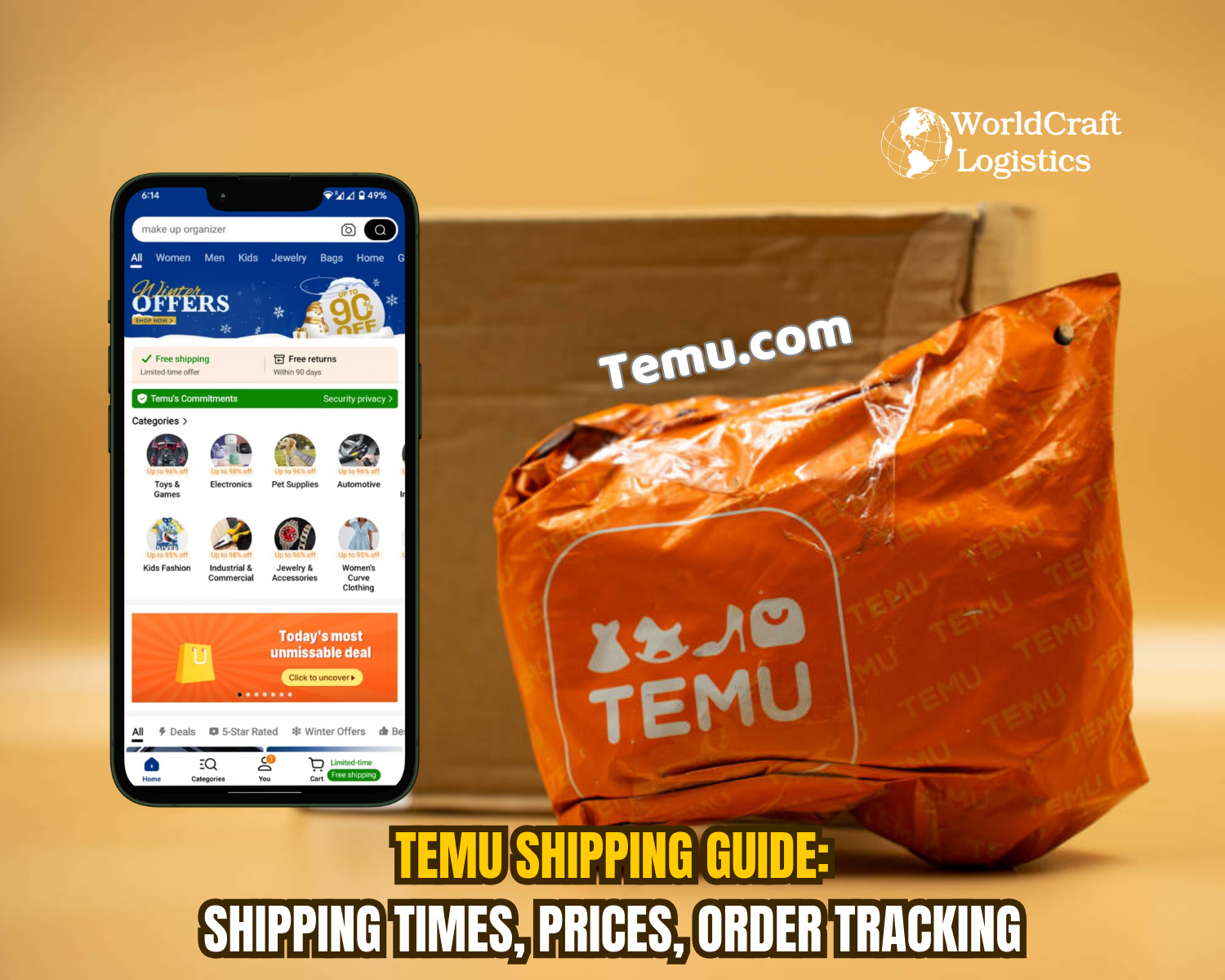
Education
01/05/2025
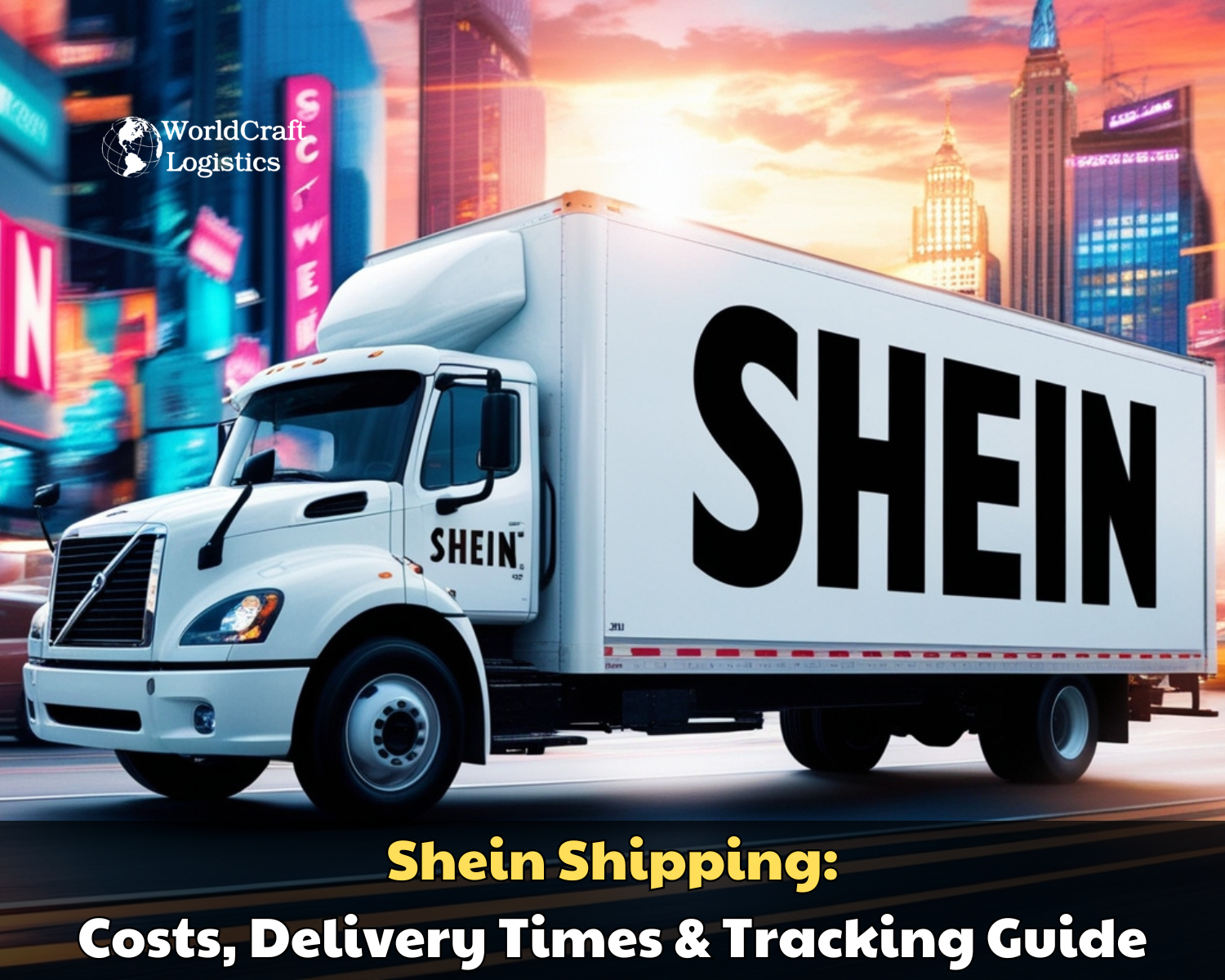
Education
02/18/2025
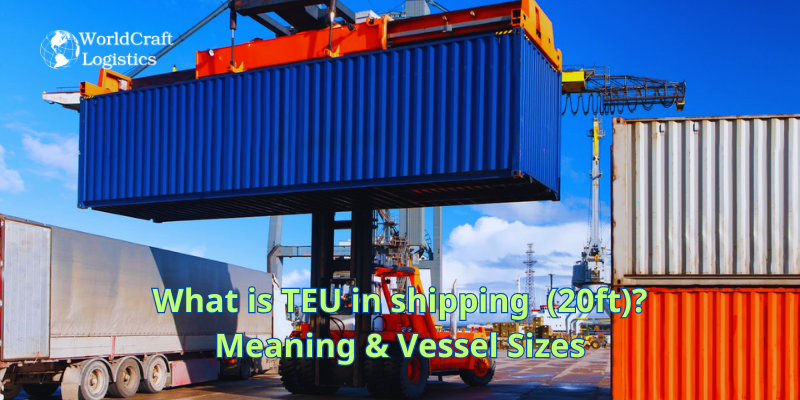
Education
01/01/2024
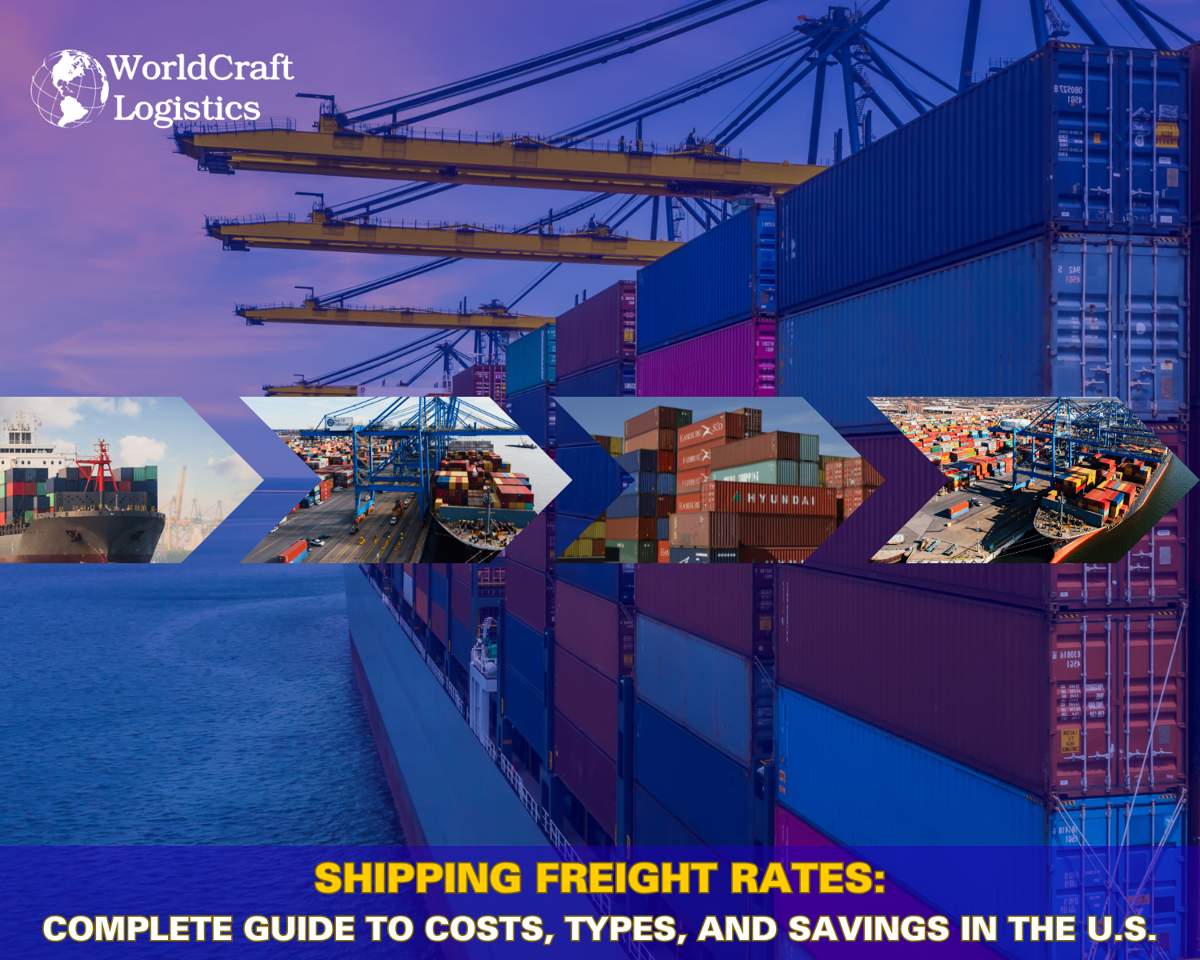
Education
09/09/2025
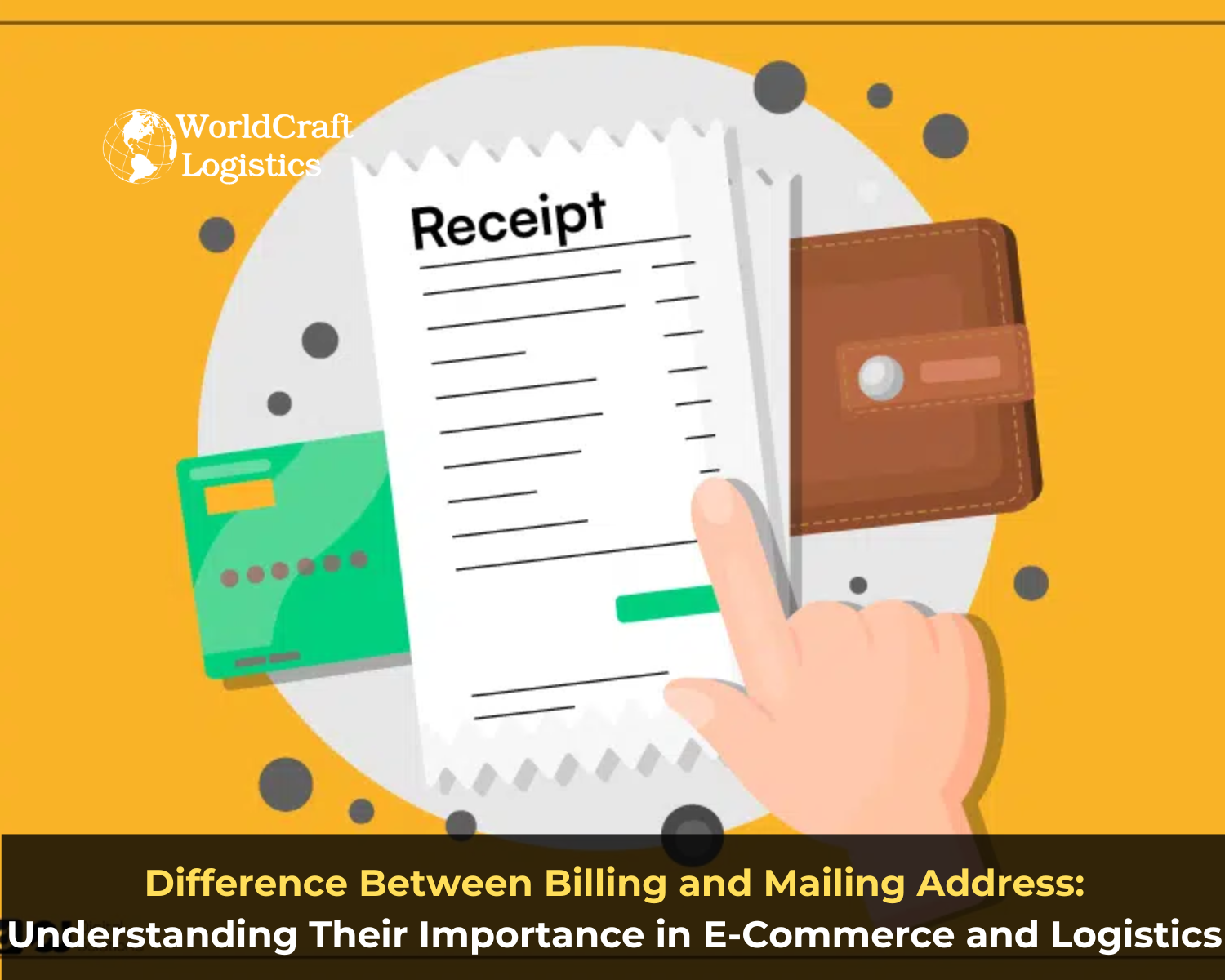
Education
08/28/2024